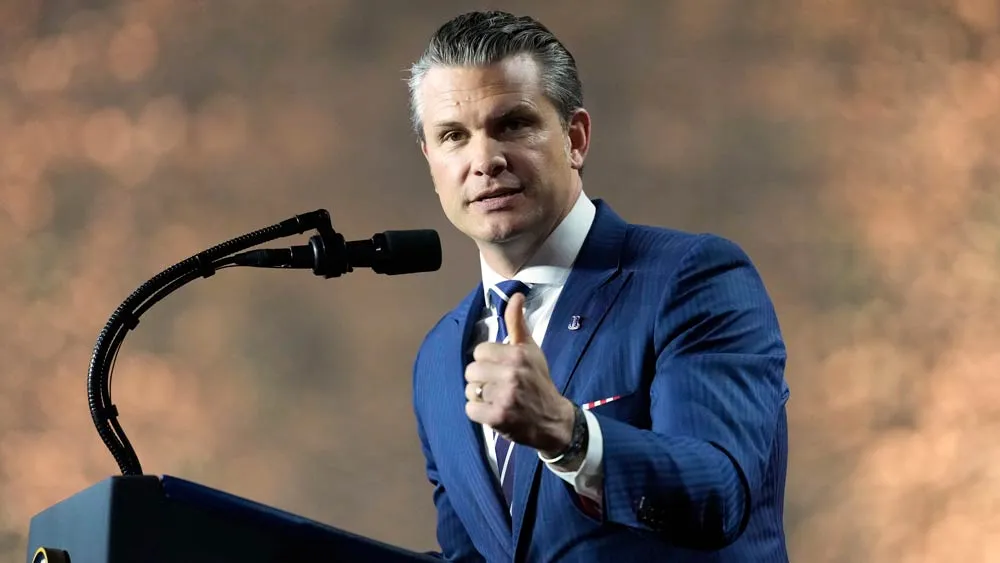January 16, 2014
EDGE 10.0: The Decade in Politics
Steve Weinstein READ TIME: 8 MIN.
In celebration of our tenth anniversary EDGE is proud to launch "EDGE 10.0: The Decade in," a retrospective series of features looking back on the past ten years of headlines, politics, personalities, trends, music, film, parties, etc... written by Editor in Chief Emeritus Steve Weinstein, and the current editorial staff at EDGE.
Ten years is strictly defined as a decade, but the period from EDGE's founding in 2004 has been epochal.
Geographically, EDGE was particularly well placed to cover U.S. politics. EDGE was founded in Boston, where we're still based. So we had a front-row seat at the groundbreaking vote that made the Bay State the first to make same-sex marriage legal. In the following decade, EDGE expanded out of New England just as LGBT rights had moved from the sidelines into the front lines of U.S. politics.
This article takes a backward glance at the equally remarkable changes that have taken place in the corridors of power, from the U.S. Capital to city halls across the country for the LGBT population. Once pariahs, about whom even our friends spoke in hushed tones, we have become powerful and powerbrokers. Politicians on both sides of the aisle not only don't mind being associated with us, they play it up.
FROM THE STATE THAT BROUGHT YOU BARNEY FRANK
Being based in Massachusetts, EDGE had the up-close opportunity to observe the career of the remarkable man who in so many ways was a trailblazer for the parade of out-LGBT elected officials to follow. After all, Barney Frank was a representative from the Bay State.
In 2005, EDGE Contributor Peter Cassels, whose Providence, R.I., home is located only a few miles from former U.S. Congressman from Massachusetts Barney Frank's district, reported on Frank spearheading a congressional letter from 41 representatives taking to task the head of the national GOP for his party's promotion of making the Defense of Marriage Act (DOMA) an amendment to the U.S. Constitution.
Frank, never exactly a shy wallflower, gleefully called out GOP Idaho Sen. Larry Craig as a "hypocrite" for opposing gay rights while taking a wide stance in an airport restroom. "It's one thing to say that someone can't be trusted to vote without being corrupt," Frank said. "It's another to say that he can't be trusted to go to the bathroom by himself."
For a clue into how EDGE's staff felt about the outing of self-hating politicians like Craig and GOP Fla. Rep. Mark Foley, only consider our assistant Arts Editor, Kilian Melloy's review of the documentary "Outrage," about "anti-gay pols whose voting records against everything from equitable family rights to support for HIV/AIDS initiatives": "Something deeper is at work, Dick's film suggests, something pathological and desperate."
As for the head of the National Republican Committee whom Frank was castigating, his name was Ken Mehlman. A hard-driving insider who used LGBT rights as a wedge issue for George W. Bush. After he voluntarily came out as gay -- well after the Bush presidency had ended, Melloy reported in 2010, how many LGBT folks wanted nothing to do with the former operative whom they believed had done lasting damage to our cause.
"Ken Mehlman is horridly homophobic and no matter how orchestrated his coming out is, our community should hold him accountable for his past," wrote Mike Rogers, the most important blogger outing politicians in D.C. Others, however, such as well-known activist Winnie Stachelberg, an LGBT Democratic strategist and the head of the Victory Fund, welcomed him into the fold.
THE RISING STAR OF LGBT ALLY, GAVIN NEWSOME
A 10-year retrospective provides a chance to reflect on how closely LGBT rights have intersected the careers of some straight politicians. Take, for example, one of our greatest allies, Gavin Newsom.
The then-mayor of San Francisco shot to national fame in 2004 when he issued marriage licenses to same-sex couples on the steps of City Hall. His action was a catalyst that many believe resulted in California voters passing the notorious Proposition 8 in 2008.
In 2007, EDGE reported, "The granting of marriage licenses turned out to backfire for Newsom when the California Supreme Court said he was not legally entitled to give them out."
Except, of course, with the 20/20 vision of hindsight, that's not how it's turned out at all. Instead, the long road of court cases fighting Prop. 8 eventually led to the U.S. Supreme Court overthrowing the Defense of Marriage Act and lower-court rulings allowing same-sex marriage in heartland states like New Mexico, Utah and most recently Oklahoma.
The movie-star handsome Newsom, meanwhile, tried to ride his popularity into the governor's mansion in Sacramento. But, ' target='_blank'>as one pollster said in 2009, his advocacy turned out to be a "two-edged sword." Newsom did win decisively as the second-in-command to Gov. Jerry Brown and thus, as the EDGE headline read, "keeps his political future afloat."
LGBT RIGHTS ARRIVE AT CAPITAL HILL
Will we ever see a President Newsom? Time will tell, but in the meantime, there's the long road to Damascus taken by our current president. Since 2008, when Barack Obama was first elected president, EDGE has kept tabs on the progress of his remarkable personal journey from a vague distaste to a hearty embrace of marriage equality and a forthrightness in matters LGBT that will be difficult for President Hilary Clinton to follow.
In 2009, the president-elect was accused of still pandering to the Religious Right, when some complained that he chose the homophobic Pastor Rick Warren to deliver his first inaugural invocation. Two years later, he told an interviewer that he remained "a strong supporter of civil unions," he added that "I have been to this point unwilling to sign on to same-sex marriage primarily because of my understandings of the traditional definitions of marriage."
Then, finally, he let the other shoe drop. In July 2012, egged on by Vice-President Joe Biden, Obama for the first time stated he supported marriage equality. As EDGE's Daniel Scheffler pointed out, at that point, Obama had more to gain than to lose: "Among the Democratic Party's gay and gay-friendly elite, there has been a public and private push to support the president with words, deeds, and the most important thing in a national political campaign, money."
If there is any benchmark of how far we've come in 10 years, it would have to be the number and prominence of out-LGBT politicians. When EDGE was founded in 2004, the only out- congressmen were Frank and Jim Kolbe, a Republican. Jim McGreevey was the nation's first out governor, but that was short-lived and hardly of his own making.
LESBIANS EMERGE AS A POLITICAL FORCE TO BE RECKONED WITH
Today, there are six out members of Congress, including Wisconsin's Tammy Baldwin. "I didn't run to make history," Baldwin said in her acceptance speech. But she did, and, as EDGE headlined on Nov. 7, 2012, that night she "makes history as first openly gay U.S. senator."
An EDGE headline three years earlier noted another path-breaking woman and another milestone: "Houston voters make history by electing lesbian mayor." As if being an out-lesbian mayor of one of the nation's largest cities isn't enough, it's a city in the Deep South; what's more, Parker won again in 2011 and coasted to a final term in 2013, when her sexual identity was not only a non-issue, but she had won the backing of the city's business community and even many conservatives.
In an exclusive long sit-down with EDGE's Managing Editor, Bobby McGuire for EDGE's monthly digital magazine for iPad last year, then-New York City Council Speaker Christine Quinn talked about her own hopes to head the nation's largest city. Quinn fondly cited her predecessors, women like Edie Windsor, the plaintiff in the case that overthrew DOMA; and her lawyer, Robbie Kaplan, as her inspiration to run for mayor of New York.
Quinn didn't make it through the Democratic primary. But even the fact that her candidacy was taken for granted by many LGBT voters shows how far we've come. An EDGE exclusive look back on Quinn's failed campaign quoted Joe Jervis, the blogger known as JoeMyGod, who said in a post-mortem on the Quinn loss, "We finally have the luxury of not just automatically backing a candidate because she's gay."
Steve Weinstein has been a regular correspondent for the International Herald Tribune, the Advocate, the Village Voice and Out. He has been covering the AIDS crisis since the early '80s, when he began his career. He is the author of "The Q Guide to Fire Island" (Alyson, 2007).





